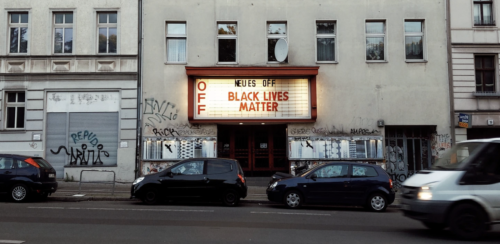
We are privileged to be immigration attorneys and work with people from all over the world. We have worked with asylum seekers who come to the U.S. to flee persecution on account of their race (among other reasons), and it has been a hard realization that a lot of those traumatic experiences of our clients have described are also being experienced by U.S. citizens and perpetrated by our own government. The conditions that applicants for asylum must show—a reasonable possibility she will be persecuted because of her race; persecution including physical harm; threats of harm; unlawful detention; patterns of intimidation; patterns of surveillance; economic discrimination; restrictions on access to education, all by the government or by groups that the government controls or fails to control—could be shown by far too many people of color.

In our early years as attorneys, we had a more idealistic vision of the U.S. as this place of sanctuary for people seeking persecution, and while it remains that, we can’t ignore the fact that it’s not simply that. We are aware of the systemic problems in our country and are learning more about how this impacts the everyday experiences and the lives of black people. We hear stories of arrests of friends, acquaintances, and loved ones at the protests and they’re reminiscent of the stories we have heard from people who are seeking asylum from their own countries. We’ve known these things happen, but the recent deaths of George Floyd, Breona Taylor and Ahmaud Arbery during a pandemic that has disproportionately killed people of color made this a tipping point. We personally and as a country can’t look away or tell ourselves reassuring platitudes.
A country where any form of persecution is allowed or sanctioned is not a country of “we the people” and is not a country of true liberty. We have the responsibility to be the people of this country and work to make it the place we envision. This is true for new citizens as well as people who have been citizens their entire life. Our responsibilities include voting (and really voting–often, and all the way down the ballot), protesting the actions of our government, serving on juries of our peers, running for office, and suing the government when it’s necessary. We’re proud of the protesters and proud of our city and of all of the people taking these obligations seriously. Black lives matter. We are committed to talking about race, being deliberate in our actions, challenging our own implicit bias more actively, and recognize that we have privileges that are not shared by all of our fellow citizens.
Photo by Kadir Celep at Unsplash.
Are you having legal issues with Immigration? Do you need legal representation?